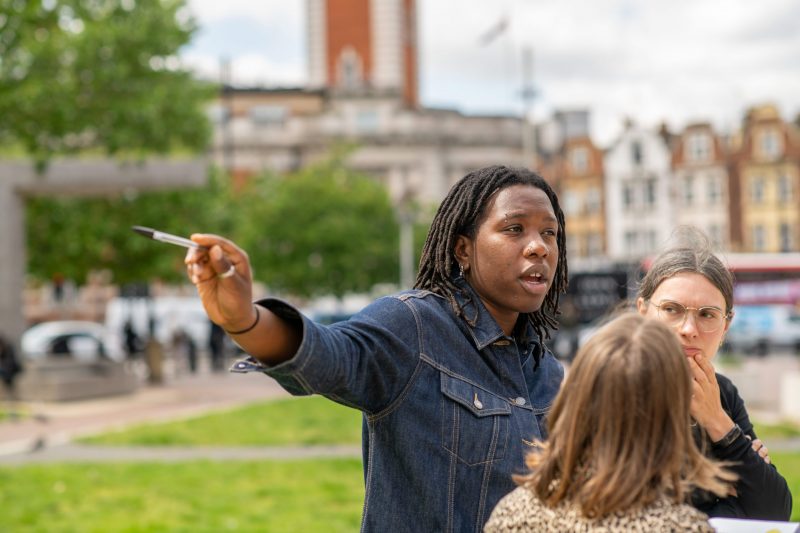Every street corner is inscribed with seen and unseen rights. Who holds these rights? What do they look like? And where do they manifest most powerfully?
Asking these questions, and many others, underpins the notion of spatial justice. Against an ever-evolving economic, political and social backdrop, it is critical that we protect and improve citizens’ experience of places; and in doing so, ensure the long-term success of our cities and communities.
Throughout 2025, We Made That and Key Cities are partnering to explore issues of spatial justice. Together, we will examine how we can foster fairness and inclusivity across our cities, and engender a sense of accessibility and belonging for all.
We will combine original research and dialogue with built environment professionals, city leaders and community representatives. We will host a series of roundtables across the country, survey Key Cities members and launch a ‘Right to Place’ roadmap summarising our findings and recommendations.
Stay tuned for updates and we hope you will be a part of the conversation.
Holly Lewis, co-founding partner, We Made That
“We recognise rights are implicit in the city’s infrastructure, policies and economic forces. Having the power to shape or erase them can often feel distant to citizens. Through this partnership, our ambition is to make spatial justice a focal point for delivering meaningful change through placemaking and regeneration.”
Cllr John Merry, Chair of Key Cities
“Our cities are rich and diverse places, and we understand that for them to flourish and prosper in the long term, it is essential that we foreground the rights of our communities. Our partnership with We Made That will help to raise the profile of this important issue, at a time when equality and inclusivity has never been more important.”



